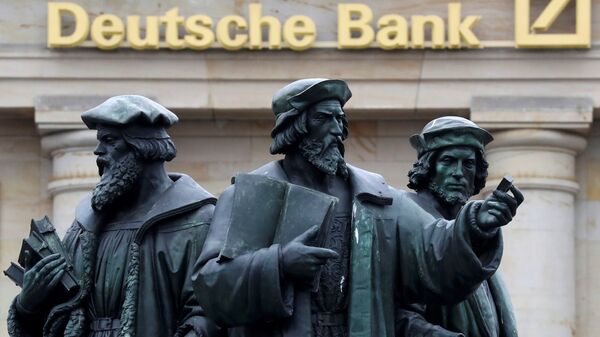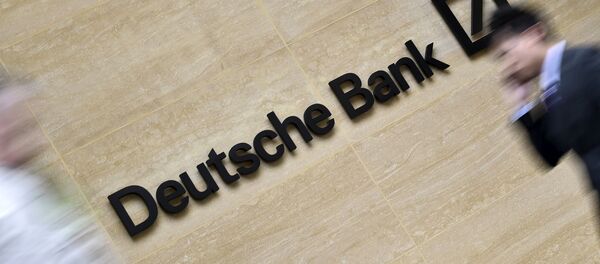https://sputnikglobe.com/20180629/usa-deutsche-bank-fails-federal-reserve-1065878235.html
US Branch of Deutsche Bank Fails Federal Reserve Stress Test
US Branch of Deutsche Bank Fails Federal Reserve Stress Test
Sputnik International
WASHINGTON (Sputnik) - An annual examination of plans by giant US banks to survive a crisis similar to the 2008 financial meltdown has cited Deutsche Bank’s... 29.06.2018, Sputnik International
2018-06-29T05:08+0000
2018-06-29T05:08+0000
2022-08-06T12:09+0000
https://cdn1.img.sputnikglobe.com/img/104608/45/1046084500_0:200:3501:2169_1920x0_80_0_0_cbacb62a3e1e8b2054b0238f13a33575.jpg
Sputnik International
feedback@sputniknews.com
+74956456601
MIA „Rossiya Segodnya“
2018
Sputnik International
feedback@sputniknews.com
+74956456601
MIA „Rossiya Segodnya“
News
en_EN
Sputnik International
feedback@sputniknews.com
+74956456601
MIA „Rossiya Segodnya“
Sputnik International
feedback@sputniknews.com
+74956456601
MIA „Rossiya Segodnya“
business, newsfeed, us, deutsche bank, federal reserve
business, newsfeed, us, deutsche bank, federal reserve
US Branch of Deutsche Bank Fails Federal Reserve Stress Test
05:08 GMT 29.06.2018 (Updated: 12:09 GMT 06.08.2022) WASHINGTON (Sputnik) - An annual examination of plans by giant US banks to survive a crisis similar to the 2008 financial meltdown has cited Deutsche Bank’s branch in the United States for inadequate controls and weak assumptions to gauge losses under stress, the Federal Reserve Board announced in a press release.
"The Board objected to the capital plan from DB [Deutsche Bank] USA Corporation due to qualitative concerns," the release stated on Thursday. "Those concerns include material weaknesses in the firm's data capabilities and controls supporting its capital planning process, as well as weaknesses in its approaches and assumptions used to forecast revenues and losses under stress."
The report covered 35 of the largest US-based banking companies, and all but Deutsche Bank’s US unit were judged to have adequate planning to maintain capital levels needed to survive a crisis, the release said.
Capital acts as a cushion to absorb unanticipated losses and help ensure that banking organizations have the ability to lend to households and businesses even in times of stress, the release noted.
READ MORE: US Federal Reserve Might Adjust Obscure Interest Rate for Second Time
The common equity capital ratio — which compares high-quality capital to risk-weighted assets — of the 35 bank holding companies in the 2018 report has more than doubled from 5.2 percent in the first quarter of 2009 to 12.3 percent in the fourth quarter of 2017, according to the release.



